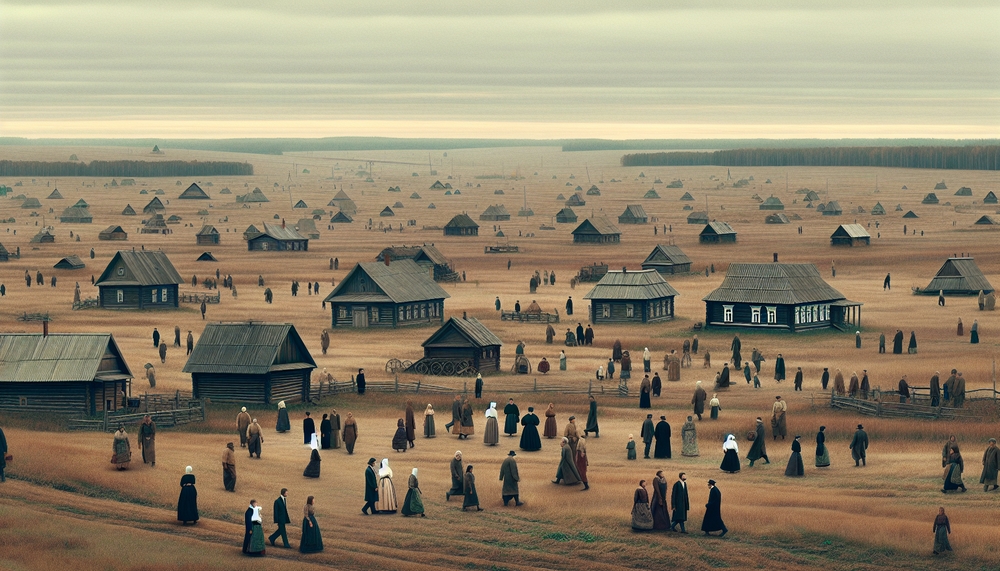Russia’s Generational Shift: Toward a Neo-Feudal Political Landscape
Published
- 3 min read

Introduction: A New Era of Russian Leadership
In the corridors of the Kremlin, a strategic overhaul is underway. Under the watchful eye of President Vladimir Putin, Russia is witnessing a generational shift within its leadership class. This transformation marks the gradual departure of Soviet-era officials in favor of a new, younger elite. Comprised often of the offspring of Putin’s closest allies, these individuals are set to lead the country into a future defined by loyalty and familial connections. This strategic recalibration aims to ensure the perpetuation of Putin’s power and ideology, tapping into a system where lineage and patronage reign supreme.
The Rise of the ‘Princesses’: Vorontsova and Tikhonova
Maria Vorontsova and Katerina Tikhonova, daughters of Vladimir Putin, are emerging as significant figures in Russia’s intricate power web. Demonstrating capabilities beyond their family name, they carry growing influence, transcending the private domain. Vorontsova is known for her role in business and scientific endeavors, aiming to enrich Russian innovation and economic prowess. Meanwhile, Tikhonova’s involvement in leadership roles suggests a growing comfort with visibility and influence. Their potential political ambitions could represent a deeper entrenchment of dynastic power, hinting at a hereditary aspect in Russia’s political architecture.
The Courtiers: Kirill Dmitriev and the New Diplomats
Among the rising stars is Kirill Dmitriev, a figure bridging Russian intentions with Western methodologies. As head of the Russian Direct Investment Fund, Dmitriev exemplifies the fusion of Eastern authority and Western business acumen. His Western-style background and connections with influential figures in the West position him as a key player in the geopolitics of Russia’s new era. Alongside other emerging diplomats, Dmitriev is a harbinger of a diplomatic corps rich in modern savvy yet deeply rooted in traditional loyalties.
Patrimonial Politics: The Rise of the ‘Princes’
Dmitry Patrushev and Boris Kovalchuk exemplify the emergence of a neo-feudal order in Russia. As they rise to prominence alongside the waning influence of their predecessors, parallels to historical feudal politics become evident. Power is transmitted through family lines and remains concentrated within interconnected networks. Patrushev and Kovalchuk are carving out roles that signify continuity in policy while also ensuring that political influence remains an hereditary privilege. This patrimonial approach underscores a conscious departure from merit-based leadership paths, prioritizing familial bonds over individual contributions.
Kremlin’s Internal Struggles and Power Dynamics
The ongoing shift in Russian political dynamics has not been without internal conflicts. As Putin maneuvers the complexities of transitioning to a youthful guard, power struggles within the Kremlin are increasingly apparent. Balancing the competing interests of seasoned actors against the ambitions of the new elite presents a delicate challenge. There are hints of division as long-standing loyalties clash with emerging aspirants. These tensions highlight both the volatility and adaptability of a regime navigating the intricate corridors of power.
Implications for Russia and the Global Arena
The generational shift underway in Russia holds significant implications for both its internal governance and international posture. Domestically, a younger leadership could introduce innovative policies, potentially altering Russia’s socio-economic landscape. However, the embrace of neo-feudal elements may also entrench oligarchic controls. Internationally, this new wave could shift diplomatic strategies, possibly favoring more assertive or unpredictable policies reflecting a blend of conservative roots and modern aspirations. Russia’s realignment in this new political order will likely resonate across global geopolitics, altering alliances and oppositions.
Russia’s transformation into a neo-feudal landscape encapsulates both ancient traditions and contemporary challenges. As the old guard yields to a younger cadre, the true extent of Putin’s ambition comes into sharp relief – a vision of a Russia where power remains securely entangled within the grasp of an interconnected elite, shaping the nation’s course for generations to come.
